![]()
Wetlands as nature-based solution for climate change mitigation
In cooperation with partner organisations the Carpathian Wetland Initiative (CWI) developed in 2020 a project idea aimed at restoration and improved protection of wetlands to enhance CO2 sequestration and storage.
“The CARPWET project outline was submitted in January 2021 on behalf of the CWI and partner organisations by the NGO DAPHNE – Institute of Applied Ecology (SK) within 5th call of EUKI.
Recently carbon-rich wetland soils have emerged as important sources for the release of CO2. The climate impact of this is hardly addressed in EU and national climate policies. The project will implement a large-scale survey of wetland carbon-rich soils in the Western Carpathians (CZ, HU, PL and SK) and quantify their carbon stock and actual and potential CO2 emissions. The outcomes will provide data for more reliable GHG reporting, support efforts to reduce CO2 emissions, and enhance CO2 sequestration through improved protection, management, and restoration of wetlands. It will help countries to include soil management targets in their NDCs. Training workshops and meetings will support knowledge sharing, networking, and crossborder dialogue.
The overarching outcome of the project is to support the Carpathian countries in reaching carbon neutrality by 2050 in line with EU policies. The main target group of this project are the contracting parties to the Carpathian Convention (CC) and relevant Working Groups (Climate Change, Biodiversity, SARD, Forestry).
The expected outcomes
- The project will identify and map wetland carbon-rich soils in the
Carpathians and assess their carbon stocks and current emissions. - It will identify priority areas for stopping the CO2 emissions and restoring carbon sequestration capacity along with restoring other ecosystem services.
- The participating countries will be encouraged to include the outcomes of the project in soil and wetland restoration and management plans and include them in their national climate policies like NDCs.
- International networking events will promote the use of the project
methodology for identifying and mapping carbon-rich soils and assessing their carbon storage, emission and sequestration capacity in other EU countries. - Through awareness-raising, networking and training activities, awareness of the role of carbon-rich soils and wetlands in climate policies will be increased.

